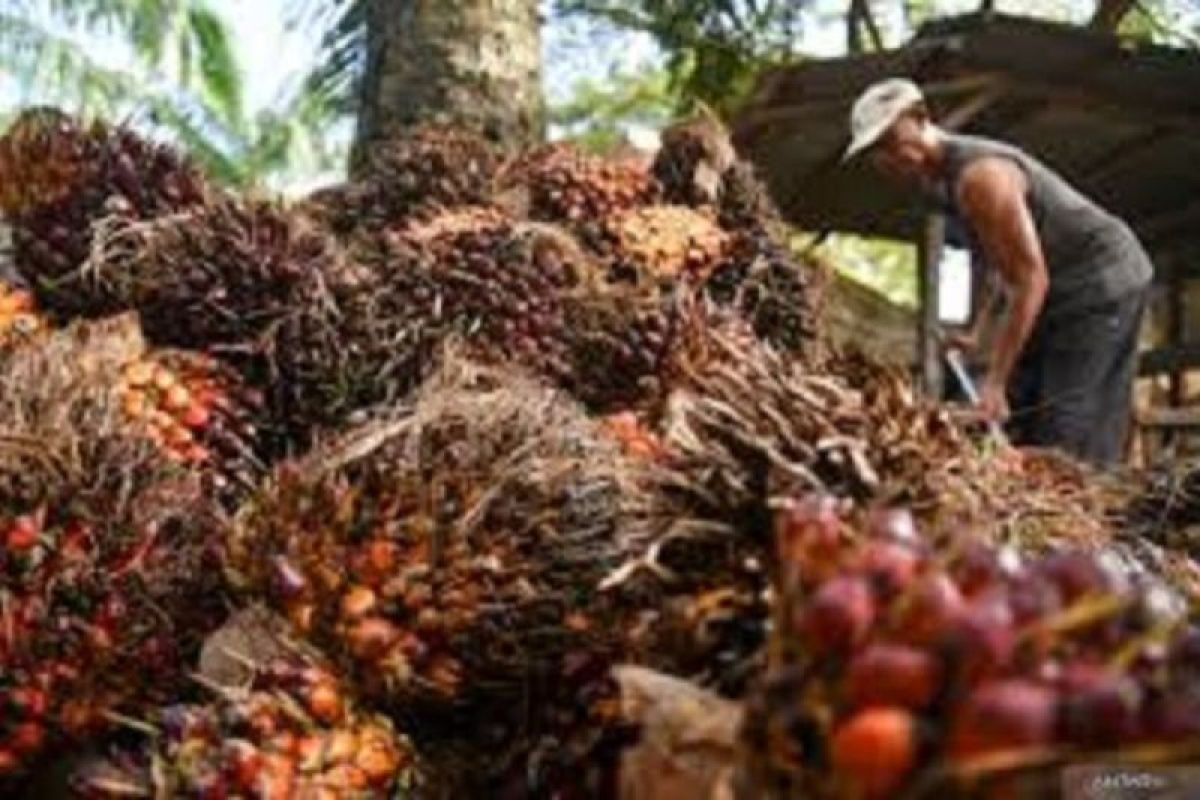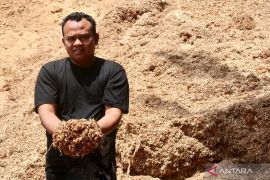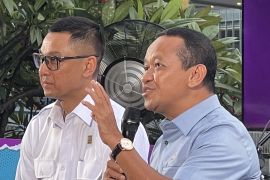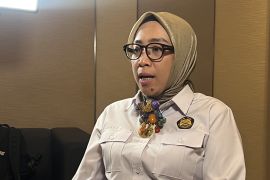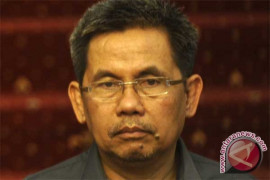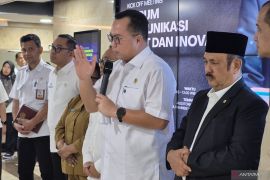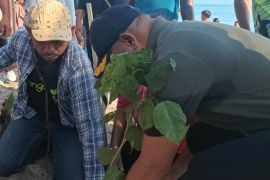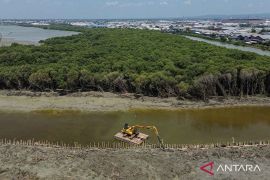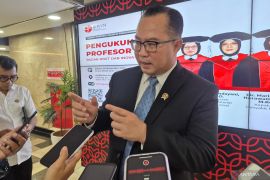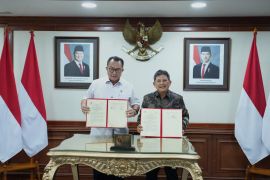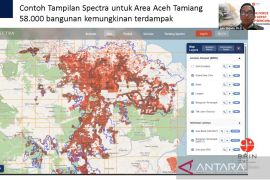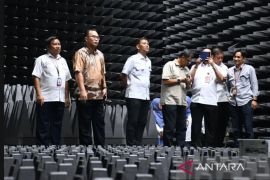Indonesia is also well-known as a megadiverse country with 21 types of ecosystems and 75 different types of vegetation. It is also blessed with abundant genetic resources (SDG) as raw materials for bioprospecting.
Bioprospecting, derived from the words biodiversity and prospection, is the effort to create products of high economic value or added value.
Regulation of the Minister of Environment and Forestry Number: P.02/MenLHK/Setjen/Kum.1/1/2018 stipulates that bioprospecting is the activity of exploration, extraction, and screening of biological natural resources for commercial use from genetic resources, species, and/or biochemicals and their derivatives.
One of the activities related to bioprospecting is managing palm trees as a source of food, energy, health products, and its derivative products.
This activity offers several good lessons describing how the management of bio assets has been interesting and strategic to be shared for the sake of the Indonesian interest and the world or international communities.
This become one of the important issues the world currently faces, especially when an increasing number of people have inhabited it while its capacity has become more limited.
It will become problematic and disastrous for human beings and the planet.
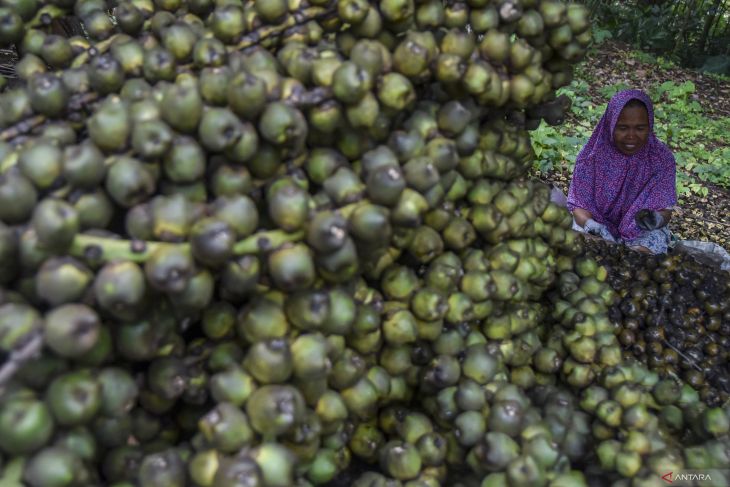
The world has witnessed ignorant behavior toward the environment that naturally supports the basic needs of living creatures in the universe, including humans. Hence, to this end, all leaders and communities should act together based on their capacity to collaborate in anticipating the dire impact of these challenging situations for their current and next generations.
The bad impact of the above challenging situation will rapidly affect vulnerable communities that depend on natural resources.
This situation will cause the poverty level to rise and the quality of the environment to decrease.
The severity of this crisis has sparked public concern and scrutiny of how leadership -- from policymakers to key stakeholders -- is responding to protect our environment. While addressing these challenges is complex, we must make steady, consistent progress toward solutions.
As global temperatures rise and climate change reaches critical levels, we must take action today to minimize environmental damage, even if we cannot completely eliminate these threats in the immediate future.
In Indonesia, the government has pledged to reduce emissions as stated in the Enhanced Nationally Determined Contribution (ENDC) by managing five sectors, namely waste, industrial process, product utilization, agriculture, and forestry, with a green approach.
As stipulated in National Regulation (PP) No. 79 of 2014, the target of using green energy will reach 23 percent in 2025 and 31 percent in 2050.
In line with the above objective, progressive action has been taken by Indonesia and its counterpart from the OIC Subsidiary agency.
The Ministry of Foreign Affairs of the Republic of Indonesia (Kemlu), in collaboration with the Faculty of Engineering of the University of Indonesia (FTUI) and the National Research and Innovation Agency (BRIN), continues to guide its counterpart from the OIC Subsidiary body, namely the Islamic University of Technology (IUT) headquarter in Bangladesh, to strengthen its curriculum in higher education agenda relating to the management of Biomass and Bioproducts.
The collaboration in the form of virtual seminar activities was held successfully on November 6, 2024, and has resulted in some fruitful discussions on ethical and technical points.
The speakers touched on the philosophical and ethical aspects of establishing OIC to increase member countries' welfare and strengthen solidarity.
The technical substance also enlightened lecturers and students and increased awareness and understanding of human resources and IUT lecturers and students in mastering applied science and technology based on local wisdom that supports sustainable development activities.
The activity also aims to enhance interaction between the Ministry of Foreign Affairs and OIC countries through OIC subsidiary bodies, in this case, the (IUT), with the Institute for Research and Technical Education in Indonesia (Faculty of Technic of the University of Indonesia or FTUI) and the Innovation and Research National Agency of the Republic of Indonesia (BRIN) and broaden the horizons of teachers and students at the IUT-OIC higher education institution.
At the same time, IUT also opens up opportunities for Indonesian teachers in the field of engineering to strengthen guidance in related engineering fields at this OIC Subsidiary Institution.
Under the theme of Indonesia's Best Experience in the Field of Biomass and Bioproducts, the IUT has expressed appreciation for the guidance from Indonesia on the development of a new curriculum at the Faculty of Engineering, IUT while broadening the understanding of teachers and students at IUT Institutions to anticipate the need for engineering and mechanical engineering in the Biomass and Bioproducts sector in OIC countries.
The virtual seminar activity was attended by several doctoral-level teaching staff, some of whom have the title of professor, as well as around 75 students from six member countries of the OIC studying at IUT: Bangladesh, Comoros, Chad, Gambia, Sierra Leone, and Sudan.
The presentation by Indonesian speakers, aimed at enlightening all seminar participants on palm management, both Aren (arenga pinnata) and Sawit (elaies guineensis), broadens understanding of the usefulness of palm trees by using manual and mechanical work or equipment so that they become value-added products that encourage circular economic activities.
Fortunately, the plant type may also be found in many parts of OIC countries. The presentation shows the management of these palm trees may save the Earth's environment and become a source of food, renewable energy, and medicine now and in the future without neglecting the importance of other types of trees with high potential, such as daun jarak (jatropha curcas) and kayu putih (melaleuca Cajuputi).
Last but not least, the organization of this seminar has shown that Indonesia and IUT are committed to maintaining this interaction as an effort to keep their commitment as OIC member countries and OIC subsidiary bodies to help one another eradicate poverty and support sustainable development through educational institutions as well as maintaining the solidarity of nations and communities from OIC member countries now and in the future and be a world partner to save the planet.
*) Moehammad Amar Ma’ruf is a career diplomat and the writer of Book Katulistiwa.
The views and opinions expressed on this page are those of the author and do not necessarily reflect the official policy or position of ANTARA News Agency. Related news: Biomass co-firing boosts economy, cuts emissions: PLN Energi Primer
Related news: PLN strengthens the supply chain of biomass as a substitute for coal
Copyright © ANTARA 2024
